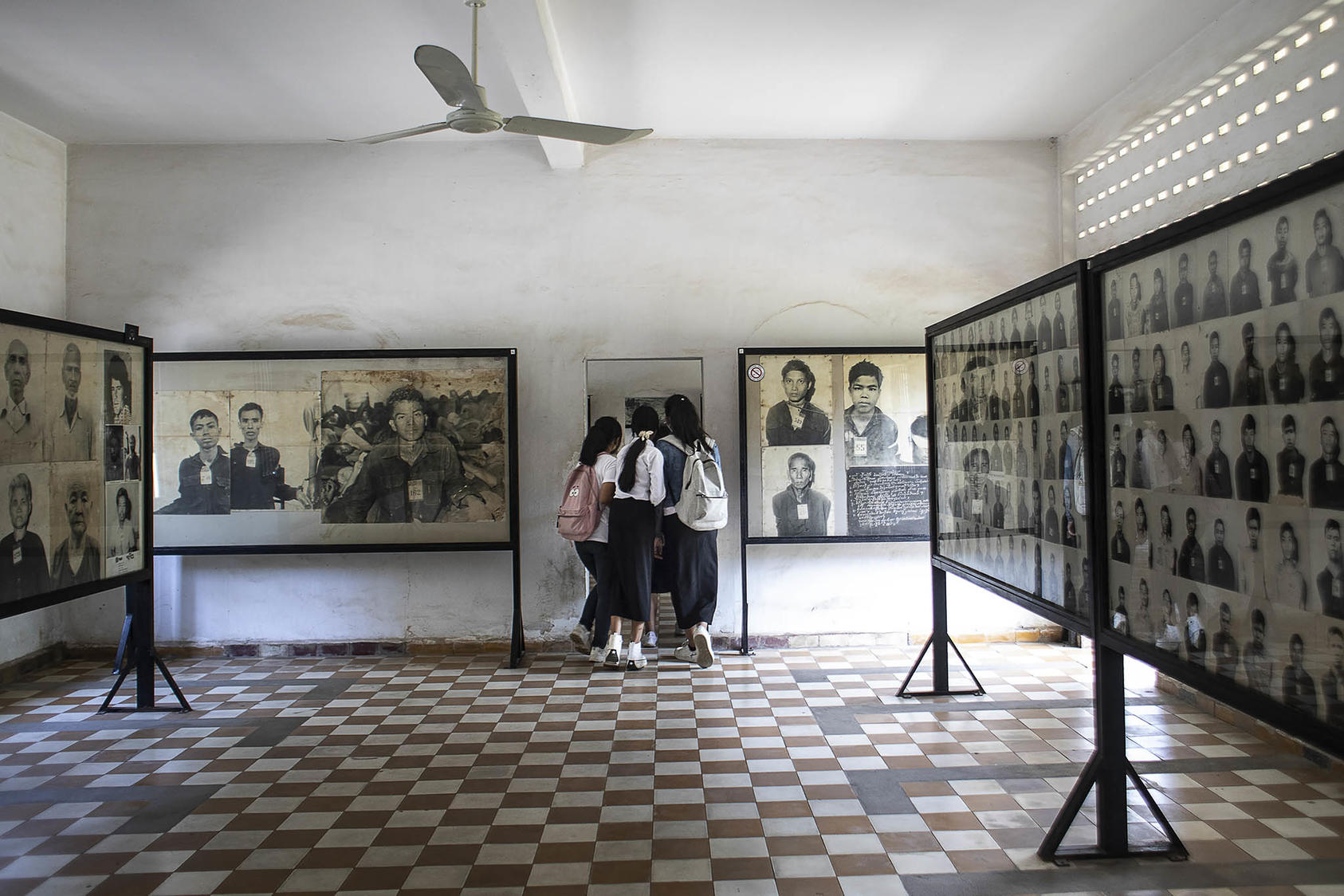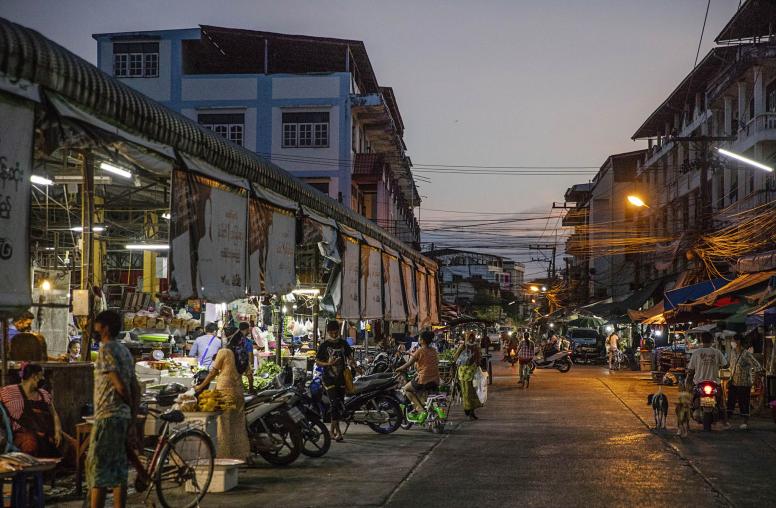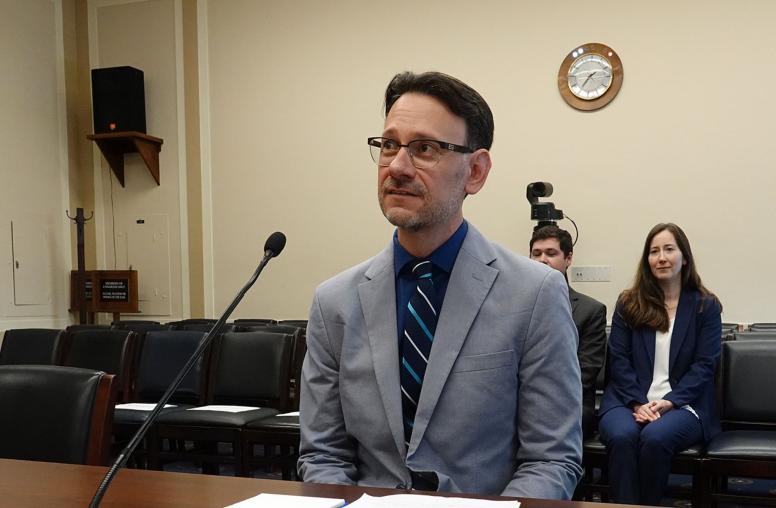Never Again? The Legacy of Cambodia’s Khmer Rouge Trials
The Extraordinary Chambers in the Courts of Cambodia has issued its final decision, but still has an important role to play in peace and reconciliation.
Between 1975 and 1979, the Khmer Rouge regime that ruled over Cambodia committed untold atrocities, with an estimated 1.5 to 2 million people dying of starvation, forced disappearances and extrajudicial killings. In mid-September, over 40 years after its reign of terror, the only formal accountability mechanism to prosecute the Khmer Rouge —the Extraordinary Chambers in the Courts of Cambodia (ECCC) — issued the final decision of its judicial mandate. While the court's legacy is complex, it served an important platform for accountability and reparations for victims. As it moves to a new phase of residual functions over the next three years, the international community should prioritize supporting its work, which is vital to boosting peace and stability and protecting the rights of Cambodians.

Since it was established in 2001, the court has convicted three senior KR leaders at a cost of over $300 million. The final decision was to reject the appeal of the last living senior leader to be convicted for crimes committed during the regime, Khieu Samphan, who received a life sentence in 2018 for genocide, crimes against humanity and war crimes. (In addition to the three officials convicted by the court, two were charged but never tried due to death and incapacity. The cases of four others were dismissed.) In these next three years, the ECCC will maintain archives, protect victims, monitor enforcement of awarded reparations and provide public information.
The Extraordinary Chambers: A Complex Legacy
Although the Khmer Rouge only controlled Cambodia from 1975 to 1979, they continued armed resistance and maintained control over parts of the country for decades, even representing Cambodia in the United Nations until 1991.
The 1991 Paris Peace Agreements ushered in the U.N. Mission Transitional Authority in Cambodia to supervise the government, facilitate peaceful and democratic elections, and disarm and demobilize armed groups. However, the 1993 elections encountered several challenges, including interference from the Khmer Rouge who refused to participate in or accept the election results. The brokered outcome of the election, featuring two prime ministers, is viewed as a root cause of subsequent political unrest. Aiming to end internal conflict, the coalition government offered amnesty to most members of the Khmer Rouge and asked the U.N. for assistance in prosecuting senior leadership for atrocities. As a result, the remaining Khmer Rouge diminished with defections until the last vestiges evaporated with the death of its infamous leader, Pol Pot, in 1998.
The United States worked closely with the U.N., international and Cambodian partners in supporting a tribunal to prosecute genocide, war crimes, and crimes against humanity committed by the Khmer Rouge. The agreement that established the ECCC as a joint international and domestic venture limited its jurisdiction to senior Khmer Rouge leaders most responsible for crimes committed between 1975 and 1979. This focused attention on the most serious atrocities, at the cost of overlooking the causes and consequences of the Khmer Rouge period, including a 1970 military coup, U.S.-led bombing and later Vietnamese occupation. The overwhelming majority of Khmer Rouge members who participated and assisted in the perpetuation of atrocities have never been held accountable for their role in them.
The court — though extraordinary for its documentation of KR atrocities, mechanism for victim participation and longevity — has a complex legacy. The tribunal offered victims the first meaningful opportunity for accountability, and its victim support initiatives funded 26 reparations projects implemented by non-governmental organizations (NGOs). But due to the limited jurisdiction of the court and its hybrid structure mixing Cambodian and international judges, broad reconciliation has been difficult to achieve. Former perpetrators and survivors are living side by side in many communities without resolution of past trauma, while the majority of Cambodians who were born after the war ended have limited awareness of their recent history.
The fact that Cambodia remains a relatively peaceful society without lingering intercommunal violence in the 20 years since the end of the Khmer Rouge is a testament to the resilience and strength of the Cambodian people. However, rising inequality, corruption and Chinese influence are raising tensions in Cambodian society that need to be addressed if the country’s peaceful development trajectory is to continue.
Continuing the Search for Peace and Reconciliation
It has been over three decades since the war in Cambodia ended and two decades since the ECCC was established. Both Cambodian officials and international experts agree that the commitments made in the Paris Peace Agreements remain critical to ensuring that the Khmer Rouge atrocities never re-occur.
The Cambodian government has attempted to put its commitment to peace into practice internationally, as well as domestically. Cambodia is recognized as a global leader in demining and has made significant contributions to U.N. peacekeeping operations. More controversially, as chair of the Association of Southeast Asian Nations in 2022, Cambodia has attempted to mediate with Myanmar’s military junta, albeit without a noticeable impact to date. Back in Phnom Penh, the 2017 dissolution of the main opposition party contributed to increased polarization and misinformation. As the next national election approaches in July 2023, the ruling Cambodian People’s Party appears firmly in control, with the risk of political unrest delayed until an uncertain future transition period.
Preventing a recurrence of violence requires a continued commitment to reconciliation, one which includes Cambodia’s younger generations and centers their resilience, capacity and future. NGOs have led the way with efforts to preserve historical memories, empower youth to resolve conflicts and teach about genocide in schools, among many other initiatives. This work will continue under the ECCC’s residual phase, which will support activities that “provide for the protection of victims and witnesses; … disseminate information to the public regarding the Chambers; and monitor the enforcement of reparations awarded to Civil Parties.” To that end, two ECCC judges have been appointed as co-rapporteurs on residual functions related to victims.
In a May 2022 consultation with Cambodian NGOs and victim support groups, participants expressed optimism that past disappointment in the tribunal could be turned into a new victim-centered agenda. Among the remaining key challenges are the risk of re-traumatization, the need for a “do no harm” approach, privacy and protection. As the ECCC winds down its judicial functions, it is imperative that the international community, including the United States, continues to support efforts to promote reconciliation that will both contribute to regional peace and stability and protect the rights of Cambodian survivors.



